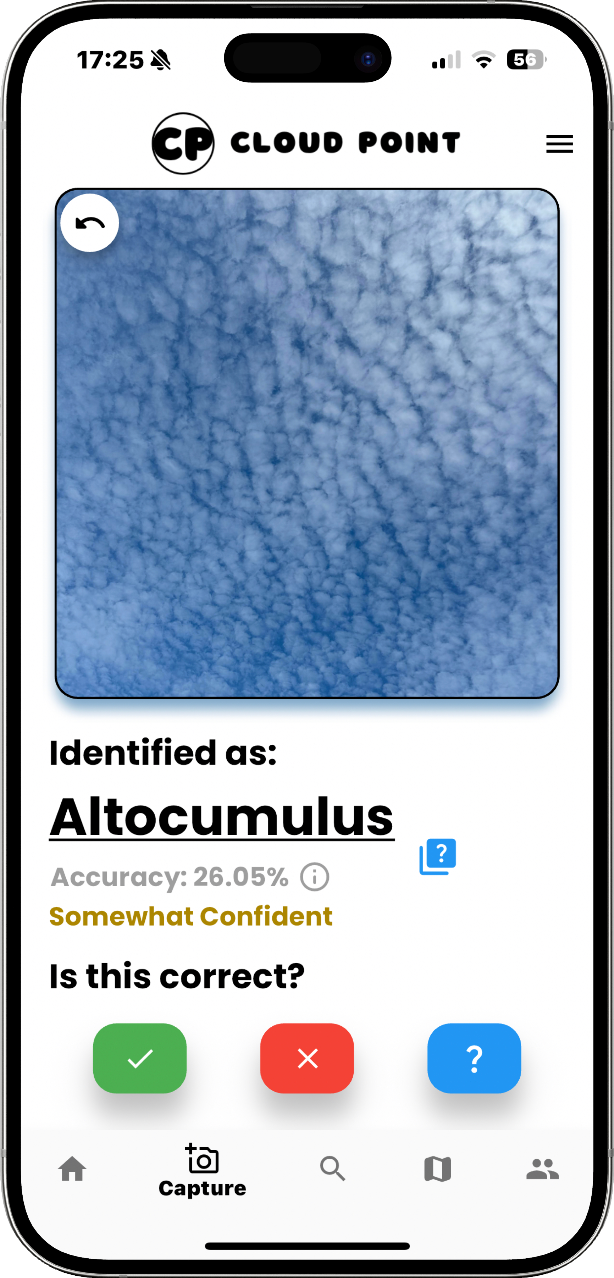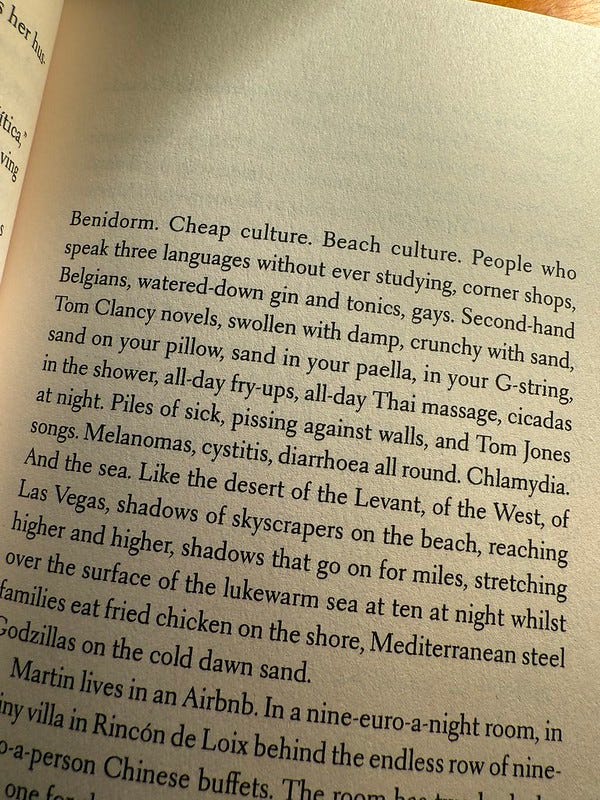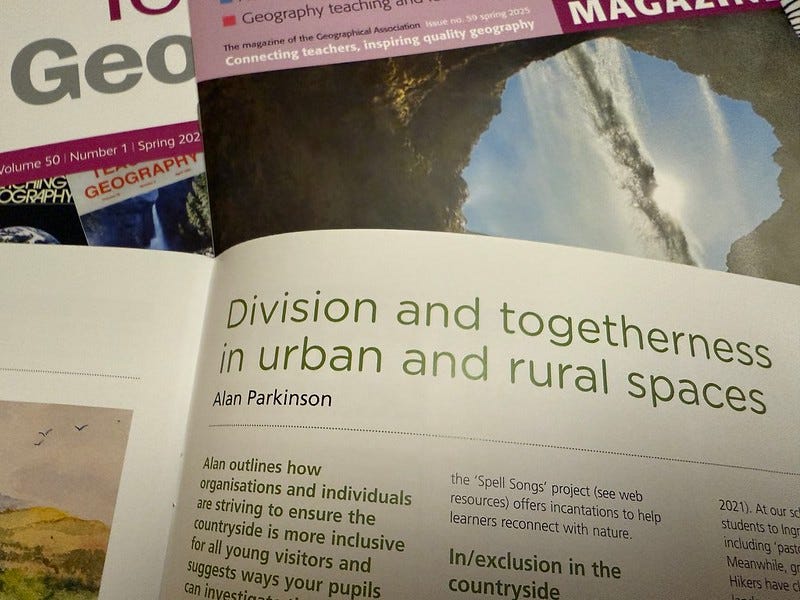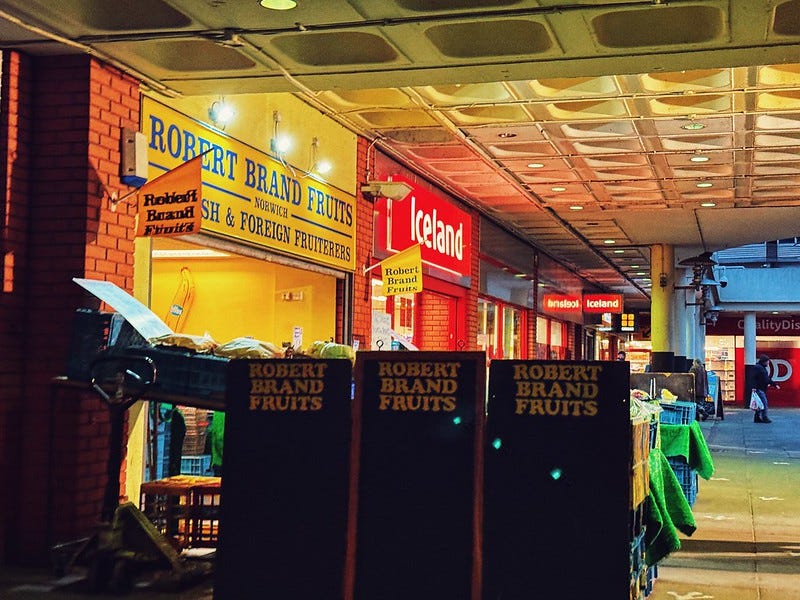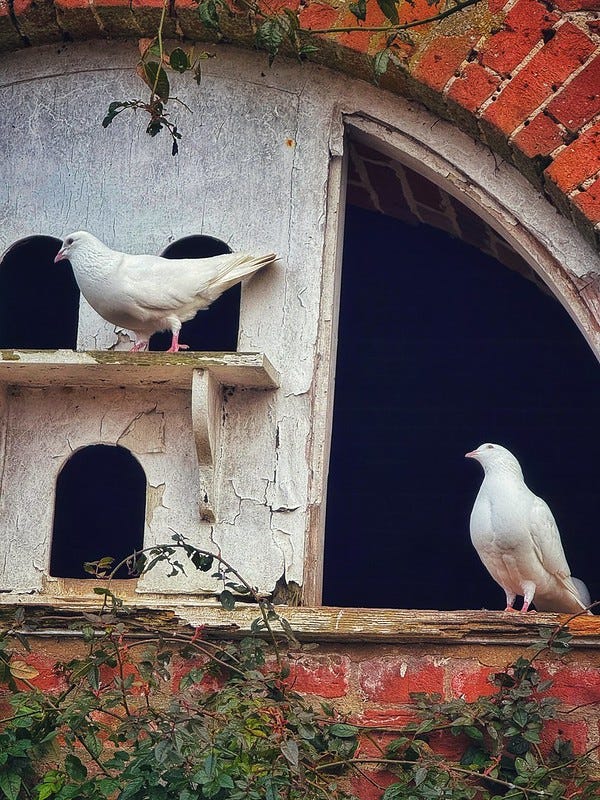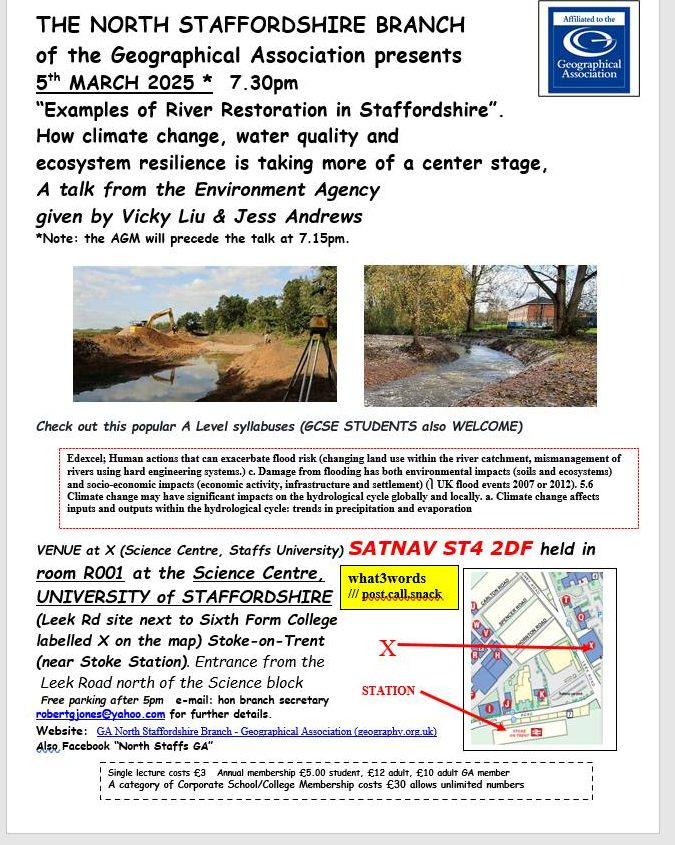Welcome to the sixth weekly newsletter providing a summary of key posts on the LivingGeography blog.
Each newsletter will usually include a number of sections:
a digest of posts from the LivingGeography blog (and other blogs)
any important geographical news
an update on any personal projects
details of books that I am reading, or cultural experiences
a couple of nice images taken this week
events that you might be interested in
This is the final week of the first half term after Christmas. Always a really tough half term. If you’re a teacher reading this - keep going, you’re nearly there!
I’m going to start with a reminder of an exciting job opportunity. The deadline is this Friday so hopefully you’ve already seen it. A very special new job is available: It is a new role as Deputy CEO of the RGS-IBG. This will be to support the work of current Director (also CEO): Professor Joe Smith.
As the job description and advertisement says:
"As the Society approaches its 200th anniversary in 2030, with ambitious associated goals, we are looking to strengthen our executive team with an exceptional, entrepreneurial leader with proven ability to balance strategic and operational impact.
To mark our bicentenary, we want our building, which is at the heart of London’s Exhibition Road Cultural Quarter, to be a gathering point of global significance and influence for people intent on making a positive difference to the world.
In achieving this, we will be able to support many more people, from leading experts to the simply curious, as they develop their skills, share their knowledge, and travel with purpose.
This new role is a vital appointment during a critical period of opportunity and challenge for the Society."
This is a permanent post. I look forward to working with the successful applicant.
I'm tempted but think it may be beyond my usual skillset.... please share with anyone you think would be perfect for the job.
Deadline: 14th February
Exciting times for the RGS too in the years ahead as we look to extend the use of our headquarters.
Blog posts this week included
An app called Cloud Point which provides access to an online community of cloud lovers - with thanks to Emma Espley for the tipoff.
Sometimes there are tools that you assume everyone knows about because they’ve been around for so long, then discover they haven’t.
Class Tools by Russel Tarr (a Historian but we’ll let him off…) is one of those. Check out the various creative options for helping you in class with tools to help classroom management and creativity.
An updated Ecological Footprint Calculator - something which should be used critically, and you could explore why such tools were developed by oil companies originally
I've submitted a proposal for a session for GeoNight. I enjoyed presenting last year and had some good people turn out to watch my session. Details are here for those who are interested.
If you'd like to propose a session the form is here.
The international "Night of Geography", promoted byEUGEOandIGU, will be held on April 4th 2025. The GeoNight is an initiative proposed for the first time by theCNFG(French National Geographical Committee) at a National scale in 2017. From 2018 onwards, the initiative has expanded internationally, first in Europe, thanks to EUGEO, and then even beyond, thanks to the IGU.
This website has been created and is managed by Massimiliano Tabusi and Arturo Gallia.
News
When I was serving on the GA's Governing Body, work started on a report exploring the diversity and inclusion of all aspects of the GA's activity. This was going to be produced by a Working Group called the DIWG.
It has taken a while to carry out the research that underpins the report. Thanks to all those who were involved in producing this, and the report is finally here, and will guide the GA’s future work in this area.
Thanks to Steve Brace for sending me a copy of the report.
Thanks also to the report's co-authors:
Elaine Anderson, Nona Anderson, Peter Jackson, Alastair Owens, Hina Robinson, Iram Sammar and Christine Winter.
The report can be downloaded from the GA website.
The GA press release said:
Despite growing diversity of the geography GCSE cohort, at A level and at university geography is one of the least diverse of all subjects. The subject, and its institutions, are not serving all geography teachers nor all young people who could benefit from studying geography. Change is needed. The Geographical Association (GA) recognises the need for change and invited feedback from a wide range of participants on its work and governance.
The Geography for Everyone? report, and the research on which it is based, was commissioned by the GA’s Diversity and Inclusion Working Group, established in response to the GA’s 'listening exercise'. This spoke of the need to ‘drive forward initiatives for greater diversity in the Association and support for anti-racist teaching in geography’.
While the research sets out to explore diversity and inclusion from a range of perspectives, the themes of ‘race’ and ethnicity were strongly emphasised in interviews with participants and are central to the report, perhaps reflecting wider societal concerns and movements like ‘Black Lives Matter’. The report’s co-authors commented:
'Working together on this report has opened our eyes to some of the challenges that the Geographical Association faces in becoming a more diverse and inclusive organisation.
But we are also optimistic that the GA can use the insights and recommendations in our report to drive change so that it supports the needs of all geography educators and helps to build a discipline that values the experiences and perspectives of everyone.'
The GA welcomes this report and its recommendations. These will help bring positive change to the Association and the subject. The GA is currently preparing its new 2025 -30 strategic plan and ‘Geography for Everyone’ will be one of its guiding principles.
Be sure to sign up to Richard Allaway’s Substack which is called ‘How do you know what you don’t know'?’ It’s just reached its 52nd episode.
Projects
I’ve been working on redrafting a number of things over the last week. They’re in that fiddly stage of working out everything. Lots of thinking and redrafting, although one project has gone through so many changes I’ve got a lot of material that I can reuse for something else at some point.
You’ll remember that I worked as a reviewer and author of the Oak National resources produced by the Geographical Association and now all available to view, free of charge: over 250 fully resourced Primary geography lessons. I’ve spent some time reviewing lessons which will form the Oak National KS3 curriculum, again with the Geographical Association, and due later in the year.
Reading
I was reading several things this week on and off, and made a quick start into ‘Spanish Beauty’ by Esther García Llovet. It’s set in Benidorm and follows a police officer who has an unconventional approach to policing and life. It includes interesting perspectives on a place which many British people will know from package holidays or the sitcom that used to be on ITV between 2007 and 2018.
I also read the GA’s journals. Physical copies arrived this week. If you are a subscriber to ‘Primary Geography’ you will have been able to read my article on inclusion / exclusion in rural / urban spaces.
I was down to London on Tuesday afternoon to speak to the PGCE cohort at UCL Institute of Education, and saw this book in Hatchards and it looks completely up my street for one of my favourite units.
Publishers’ blurb:
We live in a manufactured world. Unless you are floating naked through space, you are right now in direct contact with multiple manufactured products. How often do we stop to think: where do the things we buy actually come from?
There exists a nearly invisible, awe-inspiring global system of manufacturing that enables virtually every aspect of our existence. The things we surround ourselves with take surprising and often byzantine journeys to reach us – be it the thousands of litres of water needed to make a single pair of jeans or the components of our smartphones travelling over six times around the world to reach us.
From mega-factory floors, engineering laboratories and seaports to distribution hubs, supermarkets and our own homes, Tim Minshall traces these journeys to reveal the hidden world of manufacturing.
Charting how this world came to be, Your Life is Manufactured reveals the seismic impact manufacturing has had on our lives and the natural world, exploring how it could offer us a path to a truly sustainable, more equitable future. In doing so, Minshall grants us the ability to make better choices for ourselves, our communities and the planet.
I shall share my thoughts over on my GeoLibrary blog once I’ve read it.
Images
A couple of images I took this week. I look forward to getting out a little more as the weather improves in the months ahead.
Greengrocer, Anglia Square, Norwich
White Doves, Felbrigg Hall, North Norfolk
Events
Booking is still open of course for the Festival of Geography, hosted by the RGS-IBG in June. I’ve heard from a few people that they are planning to be there, which is great news - let’s have a geography party! I may put some glitter on.
I’ve also been lucky enough to get a ticket to hear Samantha Harvey talk about her book ‘Orbital’, which I’ve been using as the basis for a Year 6 unit of work, at the Cambridge Literary Festival. The event is Sold Out.
A GA Branch lecture from the Tyne and Wear GA Branch is publicised here.
Also a session from the GA Staffordshire Branch - like the one above, this is one I’ve had the pleasure of speaking at.
As always, if there’s anything you want me to showcase let me know. Happy to share job opportunities, CPD events and anything else of geographical interest. Subscriber numbers are growing but relatively slowly… approaching 200.





